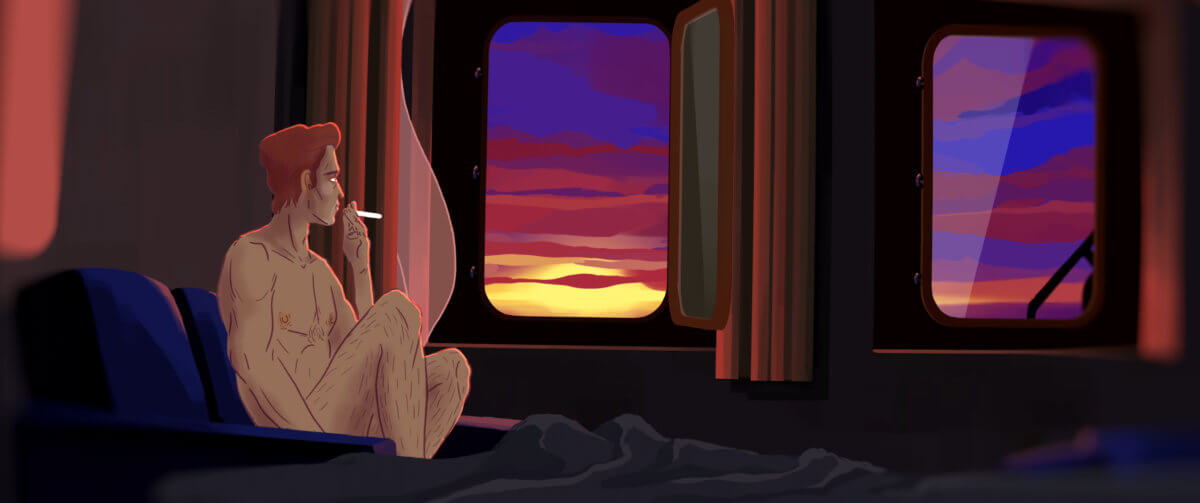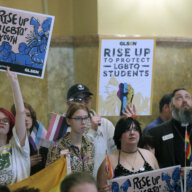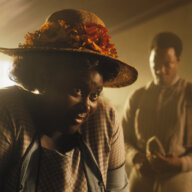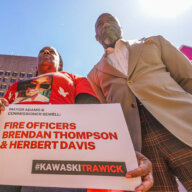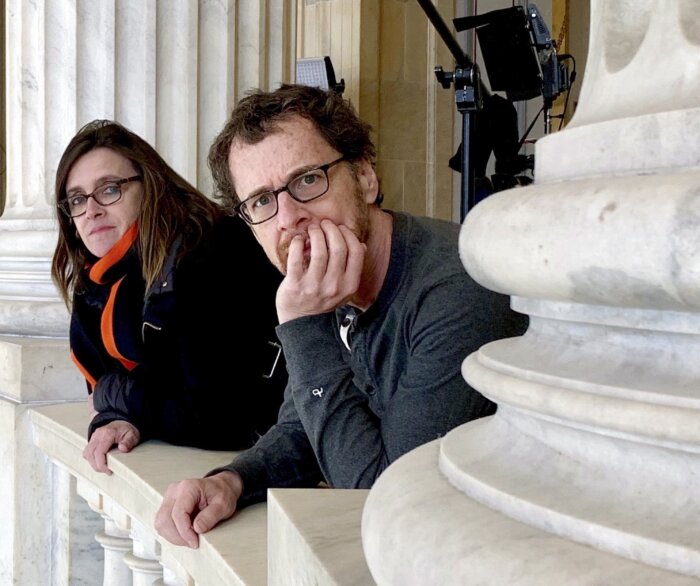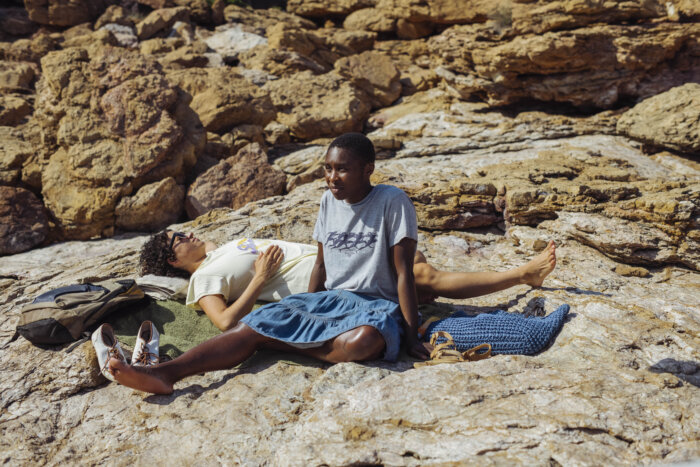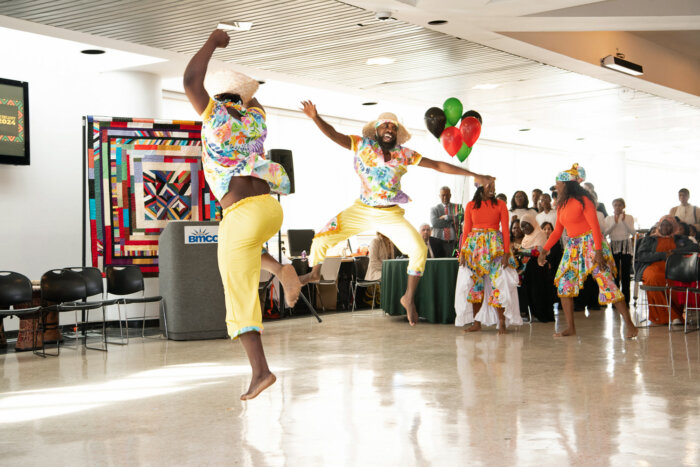The Sundance Film Festival, spanning from January 19-29, premiered several LGBTQ films this year. Some are seeking distribution, while others will be released later this year. Here is a rundown of six features and four shorts that screened at this year’s festival, many of which will be available online until January 30 at festival.sundance.org.
“Little Richard: I Am Everything”
This a glorious documentary about the legendary musician who insists he is the “architect and emancipator” of rock and roll — and he is not wrong. As director Lisa Cortés’ film shows, the pioneering Little Richard influenced everyone from James Brown to Otis Redding, and Jimi Hendrix, the Beatles, the Rolling Stones, David Bowie, and more. “Little Richard: I Am Everything” traces the performer’s career from his childhood in Macon, GA and how singers Billy Wright and Esquerita influenced him, to his breakout success with “Tutti Frutti,” which was soon covered by white musicians such as Elvis and Pat Boone.
Little Richard’s musicianship, however, was as distinctive as his voice and as flamboyant as his appearance. But there were times throughout his career where Little Richard would renounce his homosexuality and focus on God, studying religion, selling bibles, and preaching. Then he would tour the UK, have tremendous success, and get involved with drugs until another tragedy put him back on God’s path. His extremes are fascinating, and Cortés showcases scholars, musicians (Mick Jagger among them), and fans, like John Waters, to comment on Little Richard’s life and accomplishments as well as his race and sexuality. But it is Little Richard himself — seen in fantastic archival clips and interview footage — who best advocates for himself. Emphasizing the lack of appreciation he received by the music industry — he was denied money he earned and was never nominated for a competitive Grammy — Richard never lets anyone forget his importance. Cortés’ doc provides an appropriate and affectionate showcase for his legacy.
“Kokomo City”
“Kokomo City” is a fabulous, compassionate documentary directed by trans filmmaker D. Smith (her debut) about four Black trans women spilling the tea regarding their experiences and observations about sex work, race, gender, masculinity, and much more. Shot in luminous black and white, the film opens with Liyah telling a wild story about one of her clients before the other subjects, Koko Da Doll, Dominique, and Daniella, discuss how they became involved in sex work. All talk about how men often meet them in secret and treat them poorly — exploiting or fetishizing them. (Violence occurs after the orgasm, one interviewee states, addressing some of the dangers these women performing sex work.) The subjects also talk candidly about personal and professional survival, calling out a lack of agency and resources, and talking about their hope to exit sex work. “Kokomo City” shows its trans sex workers being real, and the reality of their Black womanhood as well as the fact that they are “not who their parents wanted them to be.” Smith’s frank and insightful film gives a voice to a much-maligned community. Moreover, she has selected four fantastic, compelling subjects to shed light on.
“Fairyland”
“Fairyland” is a shaggy, engrossing, and moving drama — bring tissues — about Alysia (Nessa Dougherty as a child), who moves with her poet father Steve (Scoot McNairy) to San Francisco in the 1970s after her mother dies. Steve is gay and starts dating various guys while Alysia is left alone to develop her independence. (Some call Steve’s parenting “neglectful” or “irresponsible.”) Written and directed by Andrew Durham, and based on Alysia’s memoir of her father, “Fairyland” focuses on her coming-of-age. As a teen (played by Emilia Jones of “CODA”) she grapples with her own self-expression while the AIDS crisis starts taking a serious toll on the community. The film shows how Alysia processes her relationship with her father and how it impacted her life. She is the keeper of the history and the legacy, and a series of tender and powerful scenes in the last half hour will tug hard at the heartstrings. “Fairyland” is a bit clunky at times; Durham uses radio and news reports as well archival footage to set the scene, and it is odd that Steve never kisses any men, despite numerous romantic encounters, but the emotions and performances by Jones and McNairy ring true.
“The Persian Version”
Written and directed by bisexual filmmaker Maryam Keshavarz, “The Persian Version” is a vibrant comedy-drama about Leila (Layla Mohammadi), who recounts her own story and her family’s story through voiceover, flashbacks, and direct address. She focuses mainly on her complicated relationship with her mother, Shirin (Niousha Noor), who demands much from her only daughter. (Leila has 8 brothers.) Shirin also has trouble accepting Leila is gay. As “The Persian Version” unfolds, viewers come to understand both Shirin — who faced difficulties in Iran and America — and Leila, who unexpectedly finds herself pregnant after a one-night stand with Maximilian Balthazar (Tom Byrne). The story has a few too many subplots and digressions, but Keshavarz’s high-energy style makes all the drama about identity and belonging — while feeling displaced between two cultures — go down smoothly. She also makes insightful points about being female in a male-dominated society.
“L’Immensità”
Italian filmmaker Emanuele Crialese sets “L’Immensità” in 1970s Rome, where Clara (Penélope Cruz) lives with her husband Felice (Vincenzo Amato), and their three children. The oldest child (Luana Giuliani), named Adriana at birth, dresses and identifies as Andrew, which prompts whispers and disapproval from Felice. But Andrew does form a closer connection with Clara — even though Andrew’s mother misgenders him. The other two children are Gino (Patrizio Francioni) and Diana (Mariá Chiara Goretti).
“L’Immensità” is told largely from Andrew’s point of view as he watches his parents’ marriage disintegrate. He also finds himself attracted to Sara (Penélope Nieto Conti), a “gypsy” girl who lives on the other side of a reeded area near the family’s home. As Andrew acts defiantly, fighting with his father or his siblings, he finds strength in asserting his masculinity without shame or fear. “You and dad made me wrong,” Andrew tells his mother in a poignant scene, and Giuliani is terrific in the central role capturing his internal conflict. “L’Immensità” also features a handful of fabulous musical numbers, from Clara leading a dance while setting the table to some full-fledged black and white fantasy sequences. This marvelous domestic drama will be released later this year.
“Theater Camp”
“Theater Camp” is a playful mockumentary about the fictional “AdirondACTS” theater summer camp for kids. The film chronicles the auditions, casting, and classes, as well as tech week for the budding thespians, with some cute — and some unfunny — deadpan jokes and sight gags. One main storyline has Troy (Jimmy Tatro) possibly selling the camp to Caroline (Patti Harrison) while another has Rebecca-Diane (cowriter, codirector Molly Gordon) and Amos (Ben Platt) try to stage “Joan, Still,” an original musical about the life of the comatose camp owner (Amy Sedaris). “Theater Camp” may try too hard sending up theater types, with episodes such as a “tear stick incident,” or a discussion about a “straight play” and a “gay” play, but the fun final performance compensates for the hit-or-miss humor. The film also features several queer actors and characters along with one avowed heterosexual.
“Christopher at Sea”
There were also a handful of shorts screened in various programs that depicted queer characters. One of the best was from the animated shorts program. “Christopher at Sea,” by queer filmmaker Tom CJ Brown, is a gorgeous, hand-drawn animated drama about the title character boarding a cargo ship in Europe on his way to America. He admires the glorious sunsets and the night sky and appreciates his solitude aboard a ship with no passengers. In the locker room with the crew, he also silently admires the naked male bodies. After one crew member, Valentin, cozies up to him on deck for cigarettes and conversation, Christopher becomes obsessed with Valentin — getting jealous watching him interact with others, and having sexual fantasies about him. A scene of Christopher, naked and smoking a cigarette Valentin gave him as he looks out his cabin window at a beautiful, multicolored sky, is full of longing. This excellent short is dreamy and romantic, full of vivid images and feelings. Moreover, Brown uses rough weather and Dutch angles to convey Christopher’s uneasiness, as well as pastel colors and atmospheric lighting — along with excepts from Schubert on the soundtrack — to express all of Christopher’s moods. “Christopher at Sea” is an evocative, erotic short.
“Pipes”
Another queer animated short is the cheeky black-and-white entry, “Pipes.” Bob, a bear — as in the animal, not the hairy gay man — is a plumber, hired to do a repair in what turns out to be a gay sex club. As he tries to resolve the issues with the clogged pipes, there are numerous clever visual jokes involving dildos, ball gags, nipples, asses, and penises, as well as lube, which are amusing.
“Tender”
The live-action short “Tender” is an intense, compelling depiction of abuse and dehumanization as JD (Will Brill) bullies his queer teenage son, Damon (Alexander Hubble). Damon’s response to the insults and disrespect is quietly powerful as he experiences waves of worthlessness, bitterness, and anger before he finds a means of escape. The film starts out rough and gritty but becomes oddly more lyrical as it depicts Damon’s processing his emotions. Writer/director Samm Hodges calibrates the moods keenly, and the actors deliver flinty performances.
“The Dalles”
Written and directed by Angalis Field, “The Dalles” teases an interesting set up: Cam (August Ackley) works at a fruit stand that Spencer (Joshuah Melnick) stops by while out biking to buy some cherries. Spencer asks for directions to what appears to be a local cruising area. Cam, emboldened by this attractive stranger, picks up some condoms and heads out to find him. “The Dalles” builds some tension to see what happens between Cam and Spencer, but this short almost feels too slight. What transpires is subtle and satisfying, but viewers may want to see more. Hopefully, Field is using this short as a calling card to develop it into a feature.

